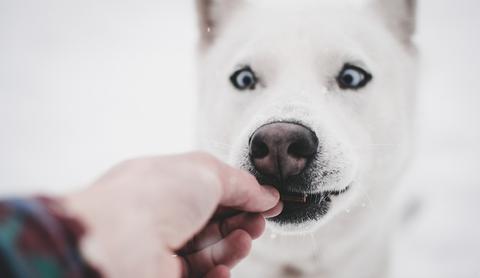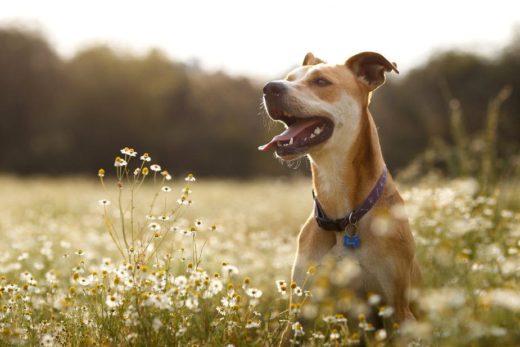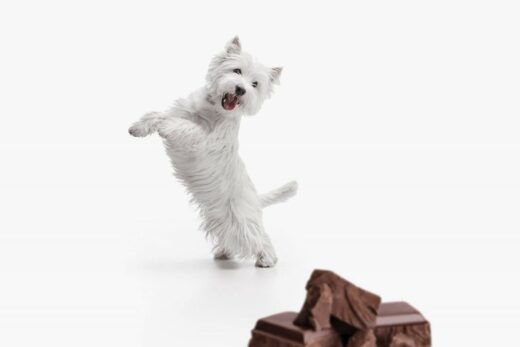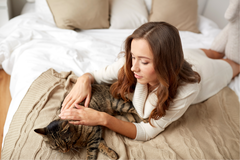Taking care of an old and underweight cat is often a trying and difficult experience. In general, cats are choosy eaters. The behavior that cats exhibit is more demanding towards their owners than dogs. The demanding behavior is especially true as the cats get old.
What to feed an old cat to gain weight is something that most cat owners find difficult to figure out. The article will discuss in detail and there are many useful tips that will help cat gain weight in a healthy manner.
When learning how to help cat gain weight, the most important thing a cat owner needs to remember is that they will have to exercise flexibility and patience when dealing with an old cat. Each cat has a different personality and the strategy that works successfully for one cat may not work for the other.
Gain knowledge about the individual needs of your cat. Pay adequate attention to its body language. This will help you understand how the cat expresses pleasure or displeasure when you encourage it to eat.
Loss of Appetite and Health Complications
How to make a cat gain weight? Loss of appetite is often considered dangerous for cats. In some cases, it can have disastrous side effects. Quick onset of dehydration usually accompanies the loss of appetite. This is especially true for cats that prefer a wet food diet. Loss of appetite often indicates an underlying health condition.
If the cat is not keeping well due to any reason, the first thing that a cat owner notices is the loss of appetite. One of the important things you need to understand is that a missed meal doesn’t mean a loss of appetite. Pay attention if the cat exhibits a complete disinterest in food even after it misses the second and third meal.
Loss of appetite in cats is serious. In such a scenario, cat owners should opt for immediate evaluation by a veterinarian. Most cats tend to hide their discomfort even if they are suffering. Cat owners are often unaware of the extent of suffering of their cats.
Loss of appetite is often the first visible sign of an underlying medical condition. Early detection of the exact cause of the cat losing weight is beneficial for the overall health of the pet in the long run.
Why Isn’t My Cat Eating?
Most cats are choosy when it comes to eating food. Your furry companion could be very particular about what they put in their mouth and bodies. This can often be a big problem…
So, what should you do when a kitty that refuses to eat?
What’s the Big Deal With Loss of Appetite in Cats?
When a cat stops eating, the body starts using fat reserves to get energy. The problem with this is that the body requires a lot of protein. When the protein reserves get over, the excess fat will put a big strain on the liver. The strain can lead to hepatic lipidosis and cause liver failure.
Reasons Your Cat Won’t Eat
In most cases, loss of appetite in a cat is temporary. Cat owners should be concerned if the cat doesn’t eat for more than 12 hours. There are many factors (mild and serious) that can cause loss of appetite in your cat.
Here is a list of causes that will help you understand the lack of appetite in your pet cat.
Change of Scenery
Change can be scary for cats as they are creatures of habit. Lack of familiar surroundings will have an effect on the well-being of the cat. This is especially true when the cat owner is traveling, moving to a new location, or introducing a cat into a dog’s home.
Sickness
Most pet owners assume that their pet is afflicted with some illness whenever there is a health issue. Quick weight loss is dangerous for the health of the cat. It is advisable to take your cat to the veterinarian for a checkup.
The vet will help determine if there is an underlying health problem that may be causing a decrease in the cat’s appetite. If any illness is ruled out, the pet owners can try other simple ways to get the cat eating again.
Psychological Issues
The brains of cats are complex. This makes them prone to depression and many other psychological issues. New household members, any changes in schedule, and other such factors may upset your pet cat. These factors are often difficult to diagnose.
If the veterinarian is unable to find any physical ailment for the loss of appetite, the cause is often diagnosed as due to psychological issues.
Recent Shots
Vaccinations make cats uneasy. One of the mild side effects of the shots is lack of appetite. This doesn’t last very long and is usually temporary. Ensure that the cat stays hydrated and gets adequate rest.
What You Can Do
The good news is that if there is no illness, it is not difficult to stimulate the appetite of your pet cat. You can try any one or a combination of the following tips to get your cat eating again.





